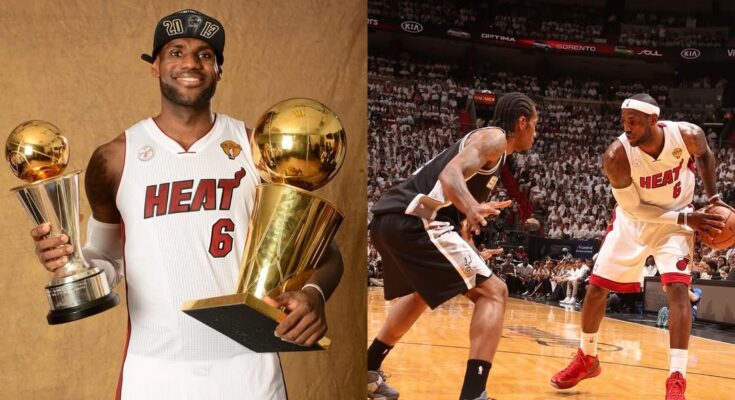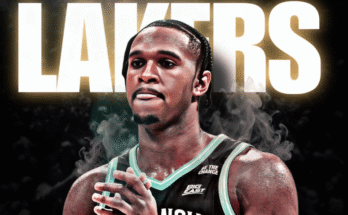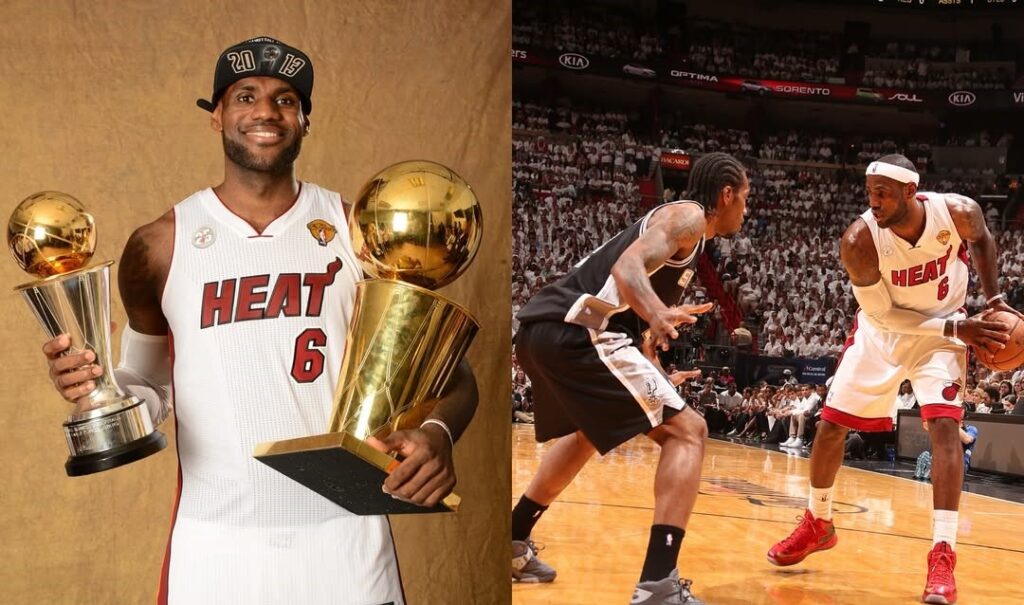
June 20, 2013. It’s more than just a date on a calendar — it’s a landmark in NBA history. A moment forever etched in the memory of fans, players, and franchises alike. On that night, inside a roaring AmericanAirlines Arena, the Miami Heat completed their mission. They defeated the San Antonio Spurs in a thrilling Game 7 of the 2013 NBA Finals, securing their second straight championship and cementing their place as one of the league’s most formidable dynasties of the modern era.
It was a culmination of resilience, redemption, and legacy. After the heartbreak of 2011 and the triumph of 2012, the 2013 title was the ultimate statement: Miami wasn’t just talented — they were built for greatness.
The Road to Game 7
The 2013 NBA Finals were an instant classic. Pitting the reigning champion Heat against the battle-tested San Antonio Spurs, the series delivered elite shot-making, clutch moments, and unforgettable drama. The two teams traded wins through the first six games, setting the stage for a decisive Game 7 — the first in the Finals since 2010.
Game 6 had already become legendary. Ray Allen’s miraculous corner three with 5.2 seconds left saved Miami’s season, forcing overtime and turning the momentum back in the Heat’s favor. But while that game was filled with chaos and magic, Game 7 was about grit, execution, and legacy.
LeBron James, under the brightest of lights, delivered.
LeBron’s Defining Moment
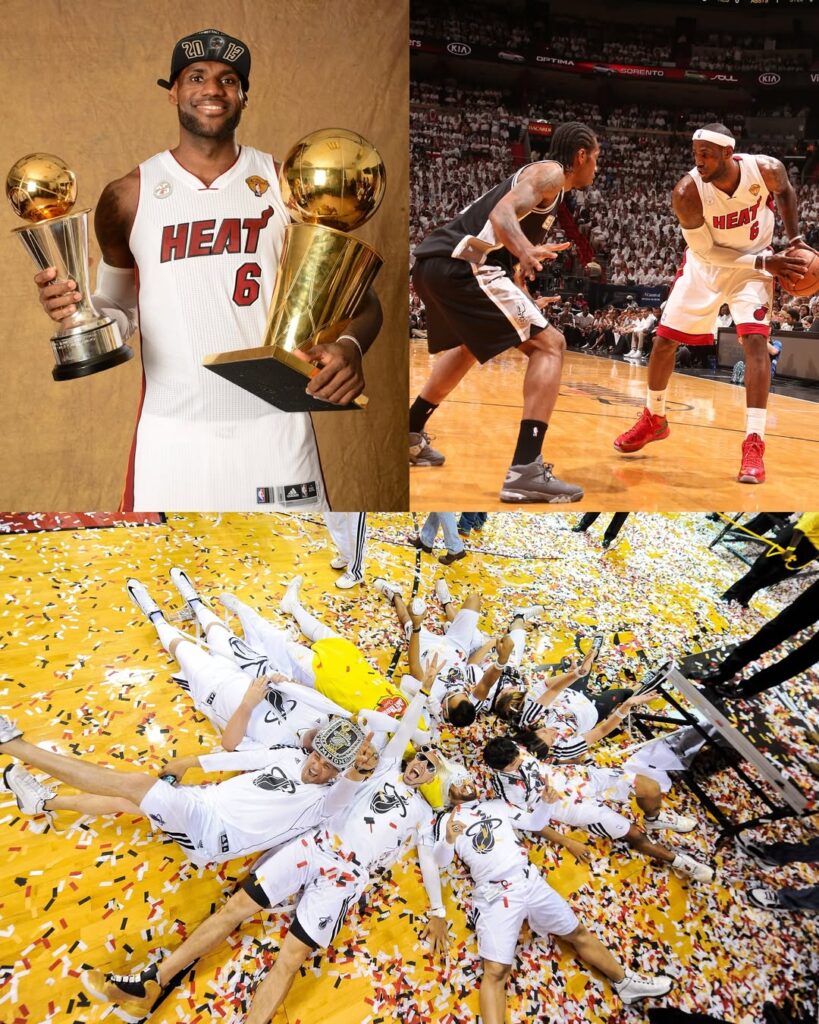
LeBron entered Game 7 knowing what was at stake. His critics were loud, his doubters waiting for him to fail. But instead of folding, James put together one of the greatest Game 7 performances in NBA history.
He finished with 37 points, 12 rebounds, and 4 assists on 12-of-23 shooting, including 5 three-pointers — none bigger than the dagger with 27.9 seconds left to put the Heat up four. It was the exclamation point on a masterclass, and proof that LeBron had fully stepped into the role of champion, leader, and closer.
After the final buzzer, James was named Finals MVP for the second year in a row, averaging 25.3 points, 10.9 rebounds, and 7.0 assists in the series. He had silenced the noise and made it clear: this was his era.
Supporting Cast Steps Up
While LeBron led the way, he didn’t do it alone.
Dwyane Wade turned back the clock with a vintage Game 7 performance, scoring 23 points and grabbing 10 rebounds, battling through lingering knee issues to deliver when it mattered most. His midrange jumper was falling, and his defensive energy gave Miami a needed boost.
Shane Battier, who had struggled for most of the series, caught fire at just the right time. The veteran forward drained six three-pointers — each one more crucial than the last — and provided floor spacing that stretched the Spurs’ defense to the limit.
Chris Bosh, while scoreless in Game 7, anchored Miami’s interior defense and made several key plays in the paint. And of course, Ray Allen, the hero of Game 6, brought leadership and steady play on both ends.
The Spurs Fight to the End
San Antonio was every bit the worthy opponent. Tim Duncan, Tony Parker, Manu Ginóbili — the core of the Spurs dynasty — played with heart and precision throughout the series. In Game 7, Duncan posted 24 points and 12 rebounds, nearly willing his team to victory. But a crucial missed layup with just over 50 seconds left would haunt him, as the Spurs’ last hopes faded.
Kawhi Leonard, then just a second-year player, showed flashes of the Finals MVP he would become, finishing with 19 points and 16 rebounds. Gregg Popovich, as always, had his team prepared and composed — but on this night, it wasn’t quite enough.
It was a battle between two all-time great franchises, and the Heat simply had the final word.
The Legacy of June 20, 2013
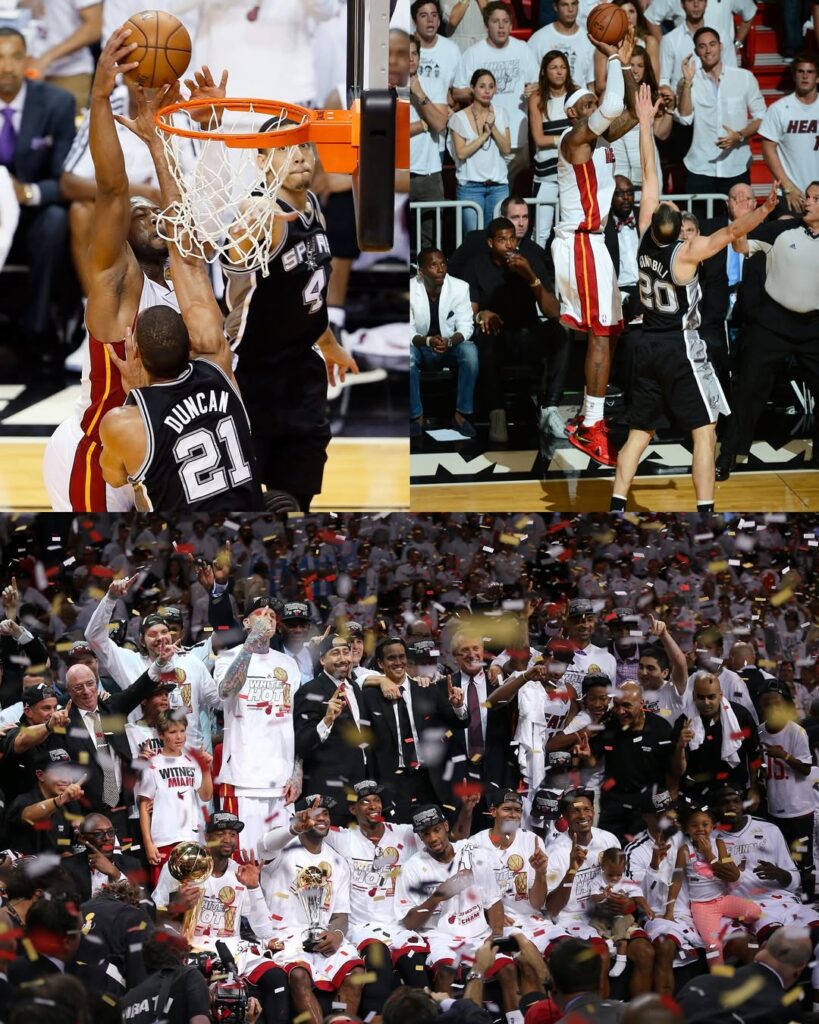
With the win, the Miami Heat captured their third championship in franchise history and became just the sixth team in NBA history to win back-to-back titles. The Big Three — LeBron, Wade, and Bosh — had fulfilled their promise, delivering not just championships but an era of dominance.
From 2011 to 2014, the Heat made four straight Finals appearances, winning two titles and elevating Miami to dynasty status. They changed the NBA with their small-ball lineups, spacing, and star-driven blueprint.
And at the center of it all was LeBron James, who transformed from “The Decision” villain to a two-time champion and one of the game’s most complete players.
A Night to Remember
June 20, 2013 wasn’t just the end of a series. It was the climax of an unforgettable chapter in NBA history. It represented the triumph of perseverance, the brilliance of superstar basketball, and the beauty of two great teams leaving everything on the floor.
For Heat fans, it was a celebration. For NBA historians, it was a milestone. For basketball lovers everywhere, it was a reminder of why we watch the game — for nights like this.
A date etched in history. A team forever remembered. A legacy built on fire, sacrifice, and greatness.
June 20, 2013. The night the Miami Heat completed the mission.
